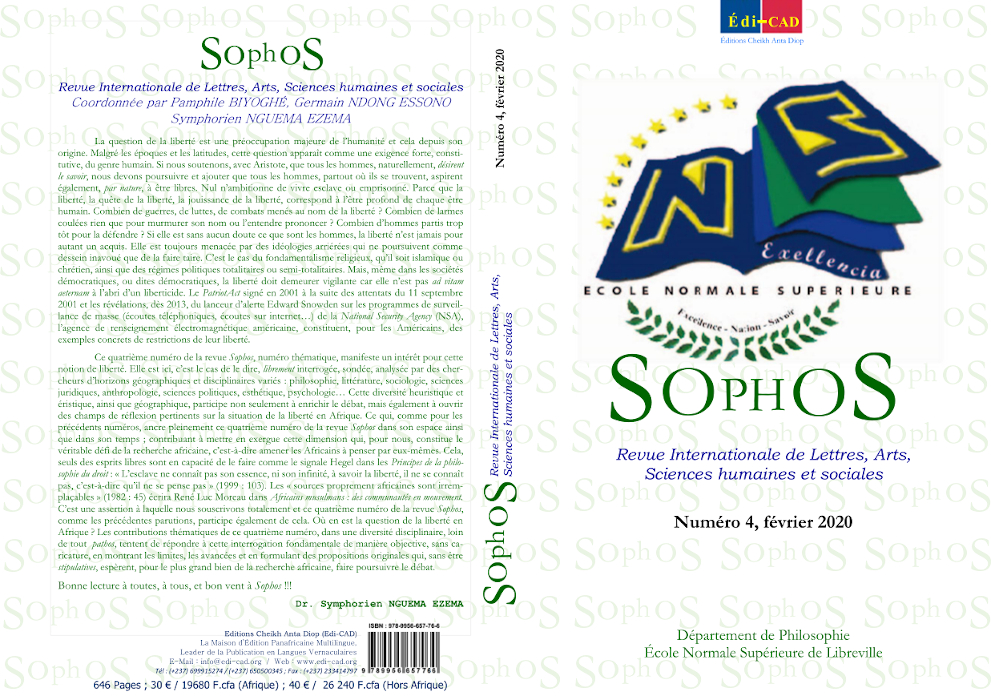
Summary
Book détails
| Title | : |
SOPHOS,Revue Internationale de Lettres, Arts, Sciences Humaines et Sociales. Numéro 4, février 2020
|
| Editor | : | Editions Cheikh Anta Diop |
| ISBN | : | 987-9956-657-76-6 |
| Number of pages | : | 646 |
| Dimensions | : | 26,5 X 33,5 cm |
| Date of publication | : | January 29, 2020 |
| Price | : | Africa : 19 680 Francs CFA / 30 € - Out of Africa : 26 240 F.cfa / 40 € |
| Order the book | ||



